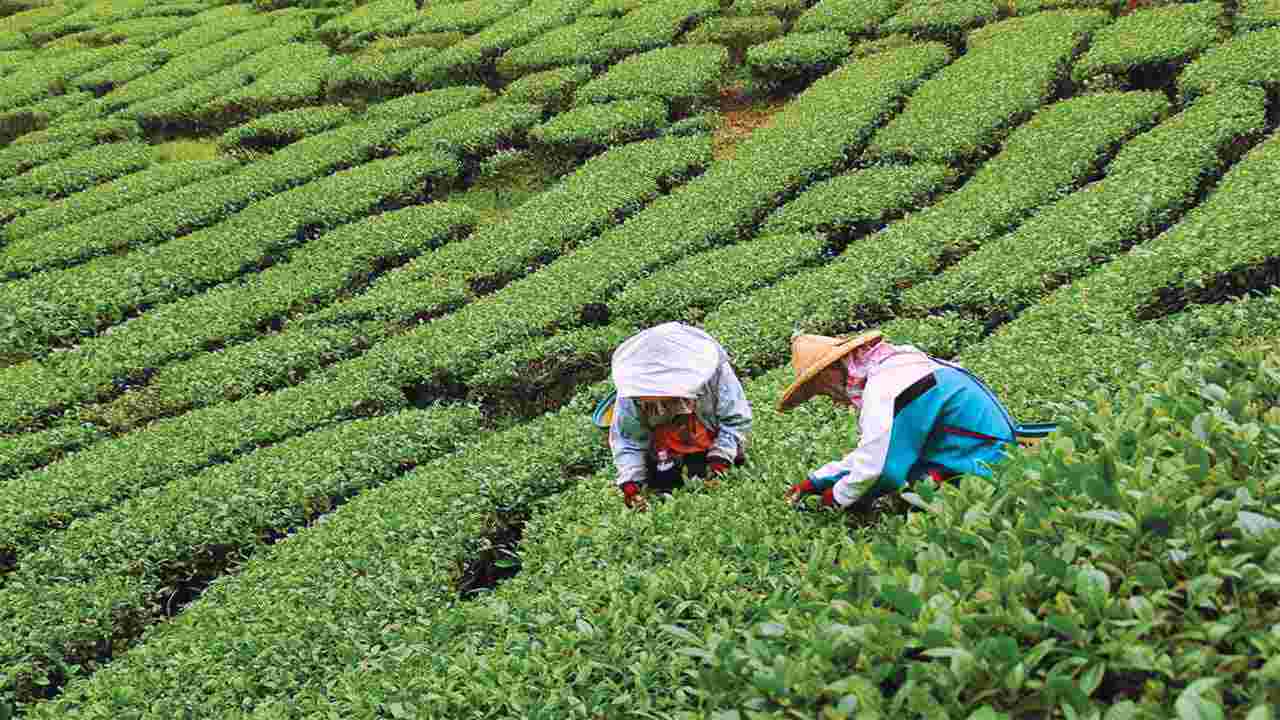
Consumers are facing a shortage of tea in Mauritius. While producers have reassured that things will get back to normal by January, the ministry of agro-industry is considering a temporary import of tea products. But what has happened to our tea?
The Mauritian tea is becoming a rare commodity. Since a few months now, consumers have been facing empty shelves in supermarkets when looking for their favourite local tea brands. The trend went largely unnoticed initially until recently when the shortage became clearer. The ministry of agro-industry is now considering whether to have recourse to temporary import of tea products in order to satisfy demand.
But why has our tea disappeared from the market? According to official sources, the main reason is the climatic condition prevailing during the crop season. Mauritius has experienced a longer winter than usual, especially on the high lands where tea is cultivated, and this has had a negative impact on leaves production. The tea sector is also characterized by labour shortage, with ageing workers still active in the fields and no young workers joining the sector. It must be noted that the agricultural sector is one of the rare sectors in Mauritius not yet dependent on foreign labour.
According to producers, the demand for tea has been rising steadily, one of the reasons being a boost in tourist arrivals. The country also has thousands of foreign workers among whom many are great tea consumers. The Mauritian tea is also well appreciated by members of the Mauritian Diaspora and our tea is available in most major capitals of the world where our Diaspora thrives.
Some planters however have a different opinion. They argue that tea plantations have been affected by a ‘bacteria’ that is responsible for the low harvest of tea shoots. But the authorities claim that plant disease is a normal occurrence and is under control, and is in no way responsible for the declining production.
Other sources indicate that the growing interest in our tea by Chinese consumers and traders account for the reduction in supply. It is said that studies have shown that the Mauritian tea contains high nutritional and medicinal values, and Chinese traders are more and more interested in importing our tea. However, the current volume produced in Mauritius is insufficient for an enhanced export market. If indeed there is high demand for our tea, then this spells another era for our tea industry which exports barely 30 tonnes annually. We export mainly to Reunion Island, Seychells, France and China. A ‘tea Unit’ will be set up at the FAREI (formerly AREU) to support the industry.
Green tea
While production of tea has been on decline during the past decade, the consumption of tea has been increasing. Mauritians are becoming great consumers of imported tea products such as green tea from China, herbal tea or black tea from Sri Lanka. These teas are imported under the category of ‘medicinal teas’. People believe that consumption of green tea combats stress and helps reduce weight, hence its popularity among consumers. It must be noted that import of tea is prohibited, except in the case of medicinal teas. In 2015, Mauritius imported about 17 tonnes of green tea products. On the other hand, import of black tea from COMESA countries for blending purposes is allowed to the tune of 2.5% of the quantity of tea sold for local consumption. Some 20 tonnes of black tea were imported in contractual tea year 2014/2015. Applications for import of teas have to be accompanied with an appropriate Phytosanitary Certificate from a competent authority from the country of origin, certifying that the product is safe for human consumption.
The ‘Tea Route’
Tea forms part of our history as well as our culture. Tea estates have successfully blended the tea industry with that of tourism, by conceiving the ‘Route du Thé’. This is a guided visit on the tea trail where visitors delve into the rich history of the tea industry in Mauritius, the factories, the plantations as well as a tea museum.
Good to know
The ‘National Agricultural Products Regulatory Office’ (NAPRO), in operation since 2013, is the result of a merger of Tea Board and the Tobacco Board. According to NAPRO, the tea produced in Mauritius is pesticide free, as there is no pest or disease of economic importance that attack the plant. The local tea industry produces sufficient tea to meet domestic requirements in line with the policy to be self-sufficient. Tea production has enabled the economic development of certain regions like Nouvelle France, Pont Colville, La Flora, Grand Bois and Bois Cheri. Unlike other plants of economic importance, the tea plant thrives well in these regions of high rainfall with acidic soil. At present, some 1,340 planters cultivate an area of 574 hectares. The local production of black tea annually ranges from 1,500 to 1,700 tonnes. Three tea factories – Bois Cheri Tea Estate, Corson Tea Estate Co. Ltd and La Chartreuse Tea Manufacturing Co. Ltd are in operation. The average local consumption is 1,450 tonnes annually. The annual turnover of the Tea Industry in Mauritius is around Rs 265 million. The industry contributes to the livelihood of more than 1,500 families.
Figures
Total area under tea cultivation has declined by 15% from 2014 to 2015, from 672 hectares to 574 hectares. Production of green tea leaves has on its side fallen by 11.5% between 2014 and 2015, from 7,607 tonnes to 6,732 tonnes. Production also declined from 2013 to 2014 as shown in the table.

SIFB turns 70
In the context of its 70th year of existence, the Sugar Insurance Fund Board (SIFB) will today launch its new logo and website, in the presence of the Finance minister Pravind Jugnauth. The SIFB came into operation by enactment No. 13 of 1946 on 5th October 1946 putting Mauritius in the forefront in the world as a provider of such a unique crop insurance scheme in the British territory. The setting up of this institution was widely acclaimed as a success in bringing together all categories of sugar producers (small/large planters, métayers, sugar estates, miller planters and millers) in the same pool of a mutually-funded insurance scheme. The main object of SIFB is to provide sugar insurance service against losses occurring out of inclement weather namely cyclones, drought and excessive rainfall. Losses against fire outbreaks in cane fields became another insured peril taken on board by the Fund.
Agri conference
An International Conference on Agribusiness was held this week at the University of Mauritius. Organised by the Faculty of Agriculture in collaboration with the Africa Farm Management Association, the conference saw the participation of Prof. John Wibberley, the Honorary Secretary of the International Farm Management Association (IFMA). On Wednesday Jacqueline Sauzier, Secretary General, Mauritius Chamber of Agriculture gave a presentation on Smart Agriculture. The Africa Farm Management Association (AFMA) is a registered association for agribusiness and farm management professionals and practitioners has a current membership of 135 members around the continent. The main objective of the conference is to strengthen the exchange of information among stakeholders in Agribusiness Industry and other Social Scientists on issues related to Africa Agriculture.

 Gavin Ng: “Smart farming is a must”
Gavin Ng: “Smart farming is a must”
Gavin Ng, Analyst, says that the tea industry remains a vibrant one in Mauritius and there are still untapped opportunities to explore. “Labour shortage is a major constraint and this should be addressed. The adoption of Smart Farming techniques might help boost yield, given limited cultivation land. The export market is expanding, with China becoming a major buyer and this niche market should not be neglected. The tea industry can also look at how to diversify its products. A complete rethinking of the sector is a must as it is a vital part of our agricultural sector.”
 Sachin Kulkarni: “Bio products can boost production”
Sachin Kulkarni: “Bio products can boost production”
Sachin Kulkarni, of Aadicon Biotechnologies, based in Piton du Milieu, says that bio fertilisers and other bio products produced by this company have been tested on tea plantations and the results proved to be excellent. “Local tea plants adapt perfectly to our bio products and have no side effects. We have found that our bio boosters enhance the aroma of local tea and also boost crop yield. If the products are applied to young plants, the results are even better.” Sachin Kulkarni says Aadicon Biotechnologies is already exporting its bio products to Africa and is now targeting Indian farmers. He regrets that many local farmers are not taking advantage of such products which could revolutionise farming in Mauritius.
Tea history

The first tea plant, the Camellia Sinensis, was introduced in Mauritius by a French priest, Father Galloys, in 1760. In 1770, Pierre Poivre cultivated it on a large scale. In the 19th century, Robert Farquhar, then Governor, encouraged commercial tea cultivation. He had a tea garden at Le Reduit. Unfortunately, when he left Mauritius, the plantation was abandoned, as no one was interested in his scheme. 70 years later, Sir John Pope Hennessy revived local interest in tea cultivation and consequently tea plantation was started at Nouvelle France and at Chamarel. Gradually, more people became interested in tea cultivation and there was a net increase in private plantations and new factories were built. By World War II, 850 hectares were under tea, five factories had been established and production for local consumption was in full swing. In 1948, a Tea Research Station was set up at Wooton.
In 1955, the Government launched the Tea Smallholding Scheme and the Project Planters Scheme. Tea villages were established by the Government to encourage the smallholders to live in vicinity of the tea plantations. The Tea Control Board was established to regulate and control the activities of the expanding Tea Industry, the Tea Industry Control Ordinance 1959, which came in force in February 1960. To solve the major problem of unemployment prevailing in Mauritius in the late sixties, Government decided to intensify tea development in the super humid zones not suitable for sugar-cane plantation. The private sector joined forces with government and established Dubreuil Tea Factory in 1967. The factory provided processing facilities for leaf harvested by smallholders. It later closed down. The government now plans to reopen this factory.
 J'aime
J'aime














